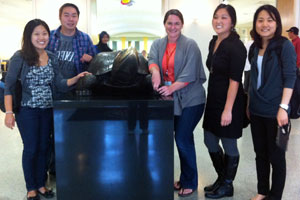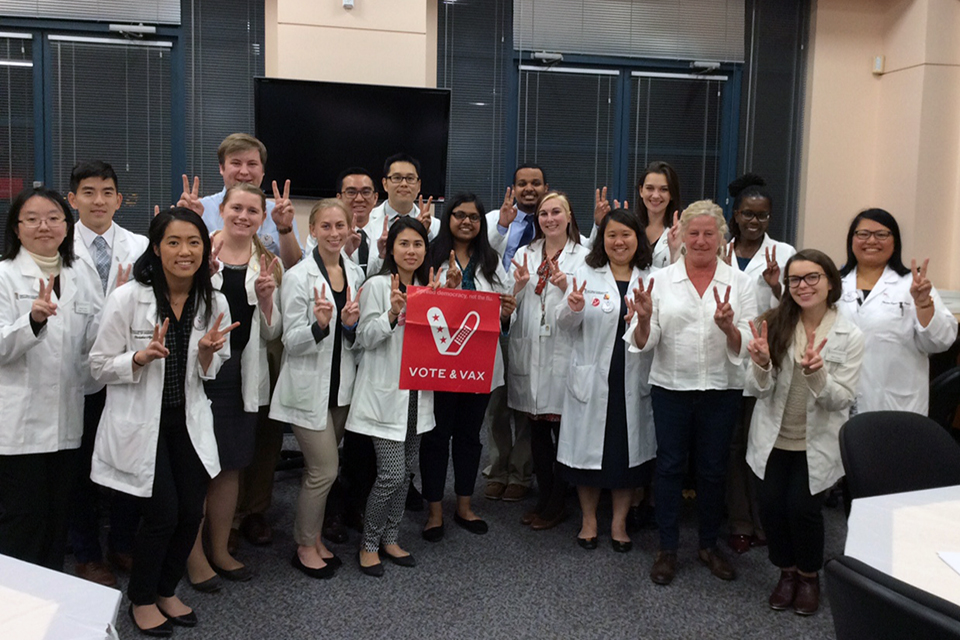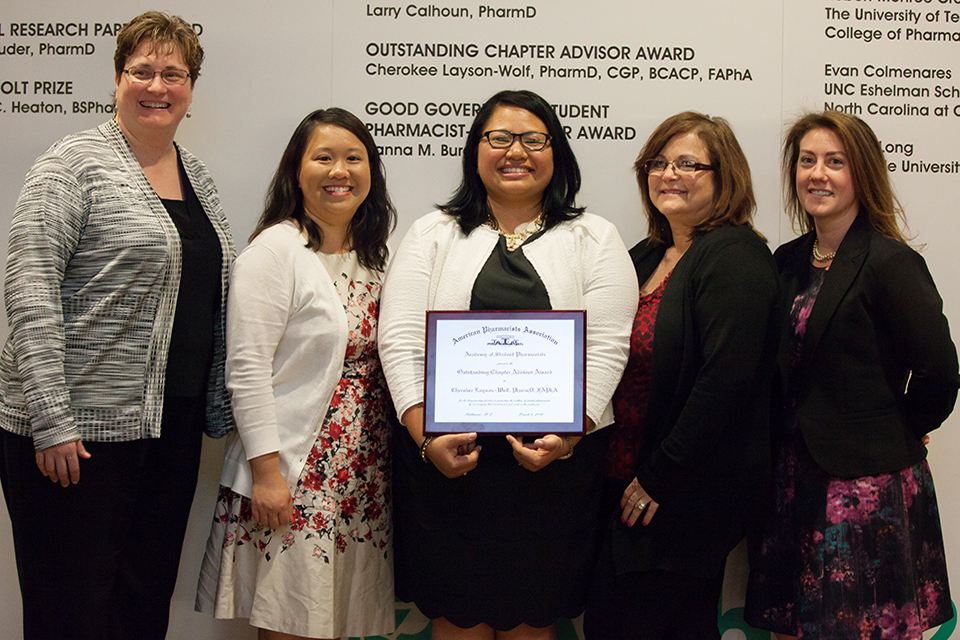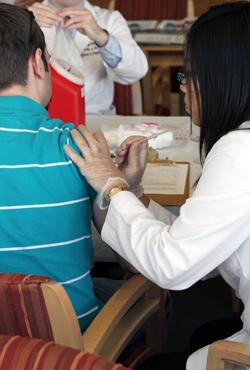New Mentorship Program Assists Undergraduates Interested in Pharmacy
APhA-ASP launches program to provide guidance and support to undergraduates from the Pre-Pharmacy Society at the University of Maryland, College Park.

By Malissa Carroll
January 22, 2013
In October 2012, the American Pharmacists Association Academy of Student Pharmacists (APhA-ASP) at the University of Maryland School of Pharmacy launched a new mentorship program to help undergraduates interested in pharmacy through their journey to pharmacy school. Developed by Joyce Chin, a second-year student pharmacist and APhA-ASP member, the APhA-ASP Maryland Pre-Pharmacy Mentorship Program (AMPM) matches students from the Pre-Pharmacy Society at the University of Maryland, College Park (UMCP) with first-, second-, and third-year student pharmacists at the School of Pharmacy.
“When I was an undergraduate, I had a mentor who attended the School of Pharmacy. I contacted her whenever I had questions about the application process, courses I should take, or just pharmacy school in general. I remember getting so much help from her during those crucial years,” says Chin. “As a pharmacy student, I continued to think about the importance of mentorship and decided to create a formal program that would reach out to prospective pharmacy students.”
As a UMCP graduate and former member of its Pre-Pharmacy Society, Chin reached out to her contacts to set up a meeting with current members of the organization. From this meeting, APhA-ASP leaders gained a better understanding of both groups’ interests and the goals they wanted to achieve through participation in the program. Students in the Pre-Pharmacy Society were enthusiastic about the program and what the pharmacy students had to offer.
“There are so many ways that pharmacy students can help us as undergraduates, from guiding us on what classes we should take and how to study for the PCAT to providing tips for personal statements, résumés, and interviews,” says Edward Neuberger, vice president of external affairs for the Pre-Pharmacy Society. “We can ask questions about anything related to pharmacy school or the field of pharmacy. We can also network with mentors to find job and internship opportunities.”
Neuberger, who is also being mentored by a student pharmacist through the program, says he is already benefitting from his participation.
“Having guidance from someone who has been through the same process is one of the best resources for success. Interacting with mentors in the program has helped me understand the competence and professionalism that pharmacists and aspiring pharmacists must maintain. One of the most important pieces of advice I have received came from a mentor I spoke with before my pharmacy school interview. He told me that I needed to act more professional,” says Neuberger.
In addition, the benefits offered through this program extend beyond prospective students. Staff in the School of Pharmacy’s Office of Student Affairs, which is responsible for PharmD recruitment and admissions and involved with student leadership and development, also witness first-hand the advantages this program affords.
“Mentorship provides valuable insight into a student’s admissions experience and helps the students who are being mentored better prepare for the challenges they might encounter as they take their PCAT exam, complete an application, attend an admissions interview, and navigate School resources if they are admitted,” says JuliAna Brammer, MBA, associate director of admissions at the School of Pharmacy. “Outreach and leadership are also characteristics that we look for in our applicants and this program shows these characteristics by example.”
The program currently serves approximately 40 undergraduates, with approximately 30 student pharmacists acting as mentors. Students contact their mentors via e-mail, phone, or in-person whenever they need advice or guidance. All mentors are active members of APhA-ASP. Chin worked with Jamie Elsner, a third-year student pharmacist and APhA-ASP chapter president, to match each undergraduate with a mentor whose interests most closely matched their own, with some mentors providing advice and guidance to more than one student.
“Mentorship is so important in pharmacy. Our School and organization offer a lot of programs to help us as student pharmacists find mentors in practicing pharmacists and other health care professionals, so I think it’s important to provide that service for incoming students as well,” says Elsner. “This program has provided a great opportunity for us to help the new generation of pharmacy students. Hopefully, we can also learn how to best be a mentor now, so that when we become pharmacists, we can help other students the way we are being helped by our mentors.”
In the future, Chin plans to organize at least one formal meet-up at the School of Pharmacy for students and mentors. She also plans to expand the program outside the Pre-Pharmacy Society at UMCP, encouraging undergraduates at other colleges and universities to develop mentorships with student pharmacists at the School of Pharmacy.



